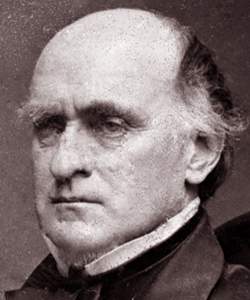John Archibald Campbell (American National Biography)
Scholarship
[Campbel] joined a [Supreme] Court led by the 73-year-old chief justice Roger B. Taney. Campbell undertook a strict constructionist philosophy of judicial review during his years on the Court and became known as a dissenter...In Dred Scott v. Sandford (1857) he voted in conference against hearing the case but was outvoted. Once the case was argued, he sided with the majority led by Chief Justice Taney in overturning the Missouri Compromise, declaring that blacks could not be citizens of the United States and that slaves were property protected by the Constitution. Campbell had owned household slaves but emancipated them upon his appointment to the Supreme Court...While riding circuit, he upheld statutes prohibiting the slave trade. He believed that slavery should not cause the dissolution of the union, that it was a transitory institution that would be changed in time, and that it had been receding to the South and Southwest since the adoption of the Constitution. He did believe, though, that slavery, as well as secession, was an issue for the states to decide. In 1860 he was mentioned as a possible compromise candidate for president of the United States, as palatable to Democrats of both the North and South. On 11 January 1861 Alabama seceded. Campbell was a steadfast believer in states' rights, and though personally opposed to secession and the war, he felt it his duty to resign from the Court and join his home state of Alabama in the Confederate cause. He resigned on 26 April 1861.
Artemus E. Ward "Campbell, John Archibald," American National Biography Online, February 2000, http://www.anb.org/articles/04/04-00199.html.



